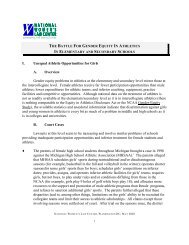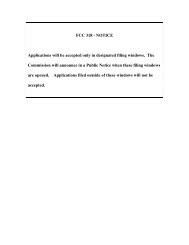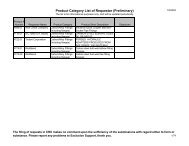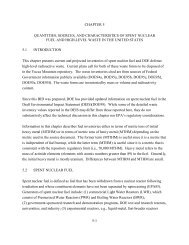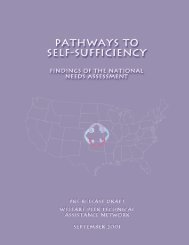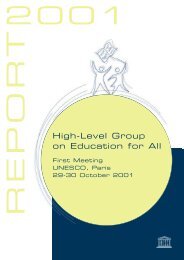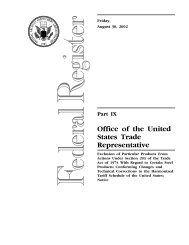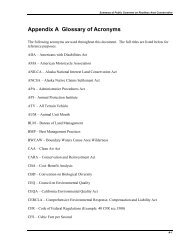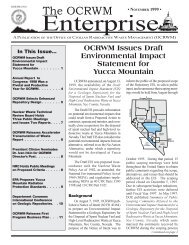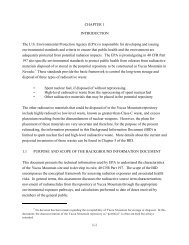E-Commerce Commission Press Kit
E-Commerce Commission Press Kit
E-Commerce Commission Press Kit
You also want an ePaper? Increase the reach of your titles
YUMPU automatically turns print PDFs into web optimized ePapers that Google loves.
To Tax or Not to TaxThe opening of the 21st century marks the dawn of a new and fundamentallydifferent age of unlimited access to information and unlimited opportunities to improvethe lives of all people through the use of information technology. The Internet and thepersonal computer will enable individuals and corporations to purchase goods andservices and to exchange information in a profoundly new way.In the past five years, Internet e-mail and World Wide Web sites havetransformed both personal and business information exchange around the globe. In time,it will be as easy for business and individual consumers to buy and sell from peopleacross the globe as from people across the street.The economic impact of this is enormous accounting for more than $300 billionin U.S. business last year alone. The Internet promises to level barriers to market entry,provide all consumers with total access to all product information, and connect all buyersto all sellers. It will effect near perfect market competition classic, textbook competitionthat even Adam Smith would marvel. Indeed, universal market access over the Internetalready is reducing the cost of doing business and providing access to untapped markets,workforces, and suppliers. According to one national study, 56 percent of U.S. companieswill see their products online by 2000, up from 24 percent in 1998.Recognizing these massive changes on the economic horizon, the U.S. Congresspassed the bi-partisan Internet Tax Freedom Act (ITFA) in October 1998. Co-sponsoredby Rep. Christopher Cox (R-CA) and Sen. Ron Wyden (D-OR), the Act placed a threeyearmoratorium on Internet taxation and established the Advisory <strong>Commission</strong> onElectronic <strong>Commerce</strong> to review Internet taxation issues. The <strong>Commission</strong>, whichcomprises a balance of public- and private-sector representatives, is to report itsrecommendations to Congress by April 2000. Its first meeting will be held on June 21and 22 in Williamsburg.The <strong>Commission</strong> will consider the competing goals of promoting the Internet'seconomic potential, addressing state and local revenue needs and preserving the privacyof those who log on. As with any new industry, a complex tax burden can stifledevelopment and growth. Yet revenue needs of states and localities also are undeniable.Another concern is how other nations may tax e-commerce and the international tradeand U.S. competitiveness.1




